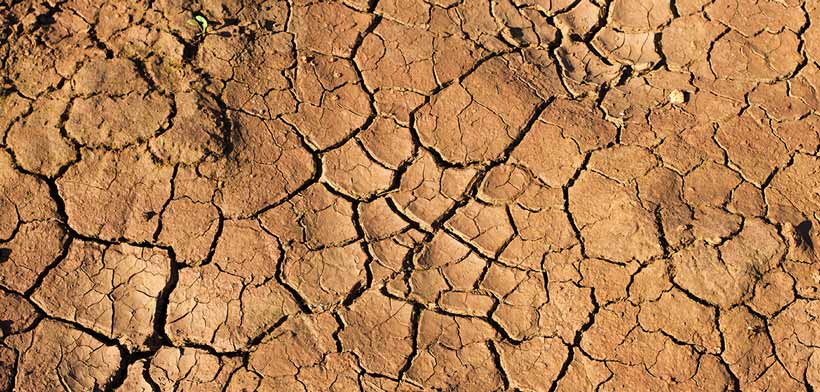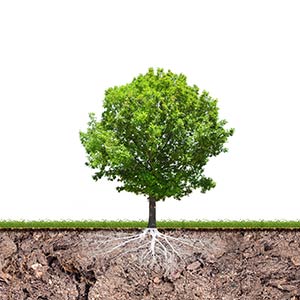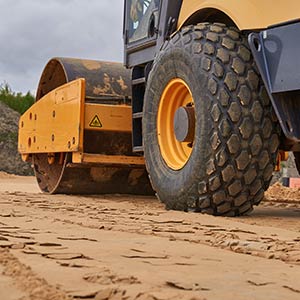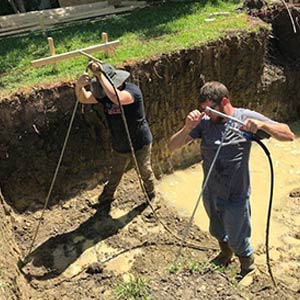512.291.0709
Mon - Fri: 9 AM - 11:30 AM
12:30 PM - 4 PM
April 13, 2021

Many Austin-area neighborhoods and businesses are built upon the expansive clay soils that are prevalent in large areas of Texas. Unfortunately, this clay soil is incredibly thirsty, expanding with water when it rains or snow melts. When the soil dries, it tends to shrink back down, creating a swell-shrink cycle that produces instability and puts foundations at risk for failure. This is detrimental to your home or business and can cause potential safety hazards.
Taking preemptive measures to stabilize the ground beneath your structure is not only recommended but is objectively essential to ensure the safety of your home (or business). The Douglas team uses an advanced soil stabilization treatment that, when applied to Austin’s clay soils, will strengthen the soil to provide a more stable ground to be built upon.
There are many warning signs when it comes to identifying potential foundation problems, but keep in mind that once you spot the clues, the damage has already been done. Our inspectors can check out your foundation and determine what your options are as far as remediation and future prevention of foundation failure.
If you see these signs around your home or business, call Douglas to set up a foundation inspection.
Any of these indications are cause for concern, and when there are numerous simultaneous indications, you could be in trouble. Luckily, our team can save almost any home or business from a failing foundation by implementing one or more of our remediation solutions.
Soil stabilization is a chemical, biological or physical treatment applied to increase or maintain the stability of the soil by changing the properties of the soil itself. The different categories can be defined as follows:
Used mainly where erosion control is needed, biological stabilization methods are achieved through planting trees and other foliage whose root systems, once established, will create a natural barrier that will hold the soil in place. This method is not used in building but is ideal for exposed terrain that typically suffers from water and wind influences.
Physical stabilization results in the modification of the soil’s particle size through the combining of different types of soils and is typically used in conjunction with mechanical stabilization processes. There are five subcategories of physical & mechanical stabilization: compaction, pre-wetting, wetting-drying cycles, reinforcement and solid wastes.
These methods have varying levels of long-term success, which is where chemical stabilization methods come into play. Physical stabilization methods are typically reinforced through the use of chemical stabilization solutions to ensure a long-term effective treatment.
Chemical stabilization agents have traditionally included a mixture of lime, cement, calcium and fly ash that, when exposed to water, creates a reaction that aids in compaction, water repulsion and binding for a stronger soil.
The stabilization agent used by Douglas Foundation Repair is an advanced ionic solution developed specifically for treating expansive clay soils. The agent, called AGSS-ICS, has been extensively studied and proven to reduce the swell potential of expansive clay soils through irreversible molecular changes in the soil to which it is applied. The application of this solution involves either spraying & mixing (for pre-build or commercial applications) or injecting (for existing properties) the solution into the soil. This application is completely non-invasive and non-toxic, so family members, children and pets are at no risk of chemical poisoning.



Douglas’ no-dig solution permanently breaks the swell/shrink cycle without disturbing your landscaping, as it is injected into the soil with an 8-foot injection rod. Not only is this method environmentally friendly, non-toxic and non-invasive, it is also a highly effective solution that fits into any budget.
Other benefits include:
Douglas’ advanced soil stabilization treatments typically take less than a day and begin to take effect immediately, making this solution fast, budget-friendly and efficient as well as environmentally inert and safe for your kids, pets and plants.
Have you noticed signs that point to potential foundation damage? Call us today at 512-291-0709 to schedule a consultation. We offer industry-leading warranties so that you can rest assured that your foundation will last.
Schedule a Consultation